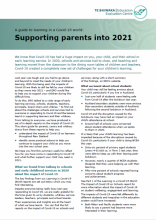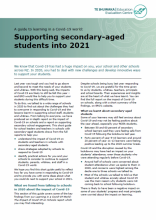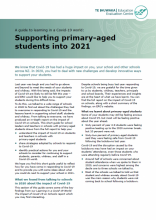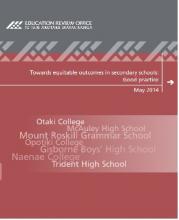A guide to learning in a Covid-19 world - Supporting parents into 2021
This short guide is for parents of children in early childhood education, and of school-aged children. It covers that we learnt from talking to schools and early childhood education services in 2020 about the impact of Covid-19. It also sets out some recommendations for how parents can continue to support their child’s learning this year.









